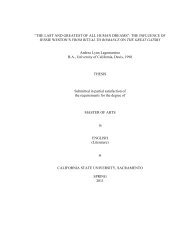COMMUNITY ACTIVISM IN OAK PARK: COMPETING AGENDAS ...
COMMUNITY ACTIVISM IN OAK PARK: COMPETING AGENDAS ...
COMMUNITY ACTIVISM IN OAK PARK: COMPETING AGENDAS ...
Create successful ePaper yourself
Turn your PDF publications into a flip-book with our unique Google optimized e-Paper software.
problems, events, and initiatives. The Neighborhood Association had a variety of<br />
members, ranging in ethnic, social, and economic background. But the majority of<br />
members could be defined as middle-class, Caucasian, having a college degree and<br />
white-collar job. Some attendees of Neighborhood Association meetings were actually<br />
long-time residents, but regardless of length of residence, all felt the desire to help<br />
improve the quality of the neighborhood through economic development and<br />
beautification projects.<br />
The Neighborhood Association was officially formed in 2003 and consists of<br />
several board members who are residents in the neighborhood of Oak Park. Board<br />
members 19<br />
are voted into position and help create the topics of discussion for monthly<br />
meetings. They also network to gain prospective members and political and financial<br />
supporters. Most importantly, these members are committed to renewing the community<br />
through various revitalization programs, activities, and initiatives. Meetings are places<br />
where board members can discuss news that will affect the community, such as urban<br />
development, business closures, new community programs, community events, and crime<br />
in the neighborhood. Meetings have quickly become places where middle-class residents<br />
can voice their opinion about the condition of their community and how to improve it.<br />
In general, members of the local Neighborhood Association perceived poor<br />
residents as irresponsible and wanting an “easy way out,” and who at times partook in the<br />
informal economy of petty theft and crime as their livelihood. This group offered non-<br />
systemic reasons for why the poor could not break out of poverty and explained the social<br />
problems of the poor as an effect of their lack of motivation to take responsibility for<br />
51


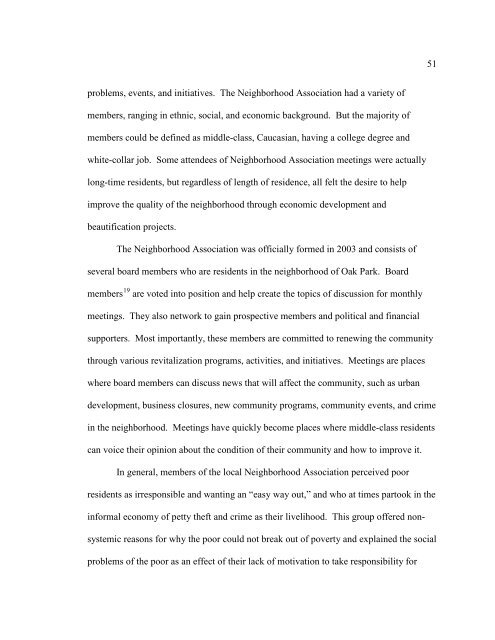
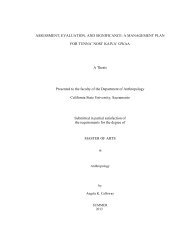
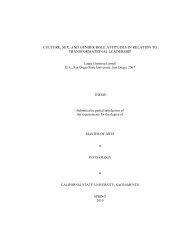
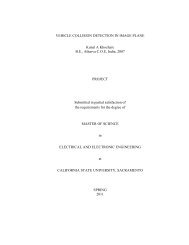
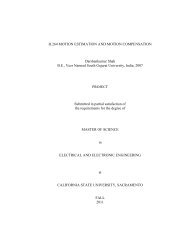
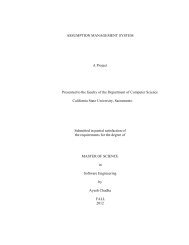
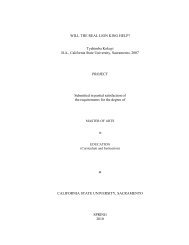
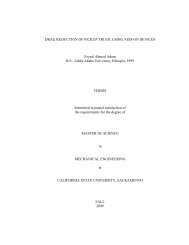
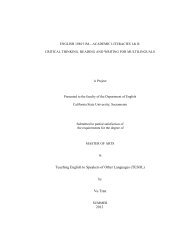
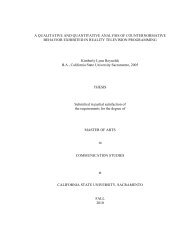
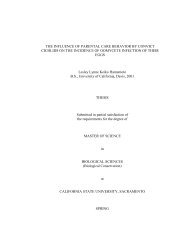
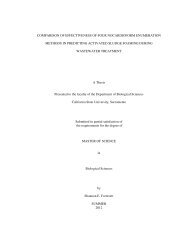
![Completed Thesis to Grad Studies[Final3].pdf](https://img.yumpu.com/17538645/1/190x245/completed-thesis-to-grad-studiesfinal3pdf.jpg?quality=85)
